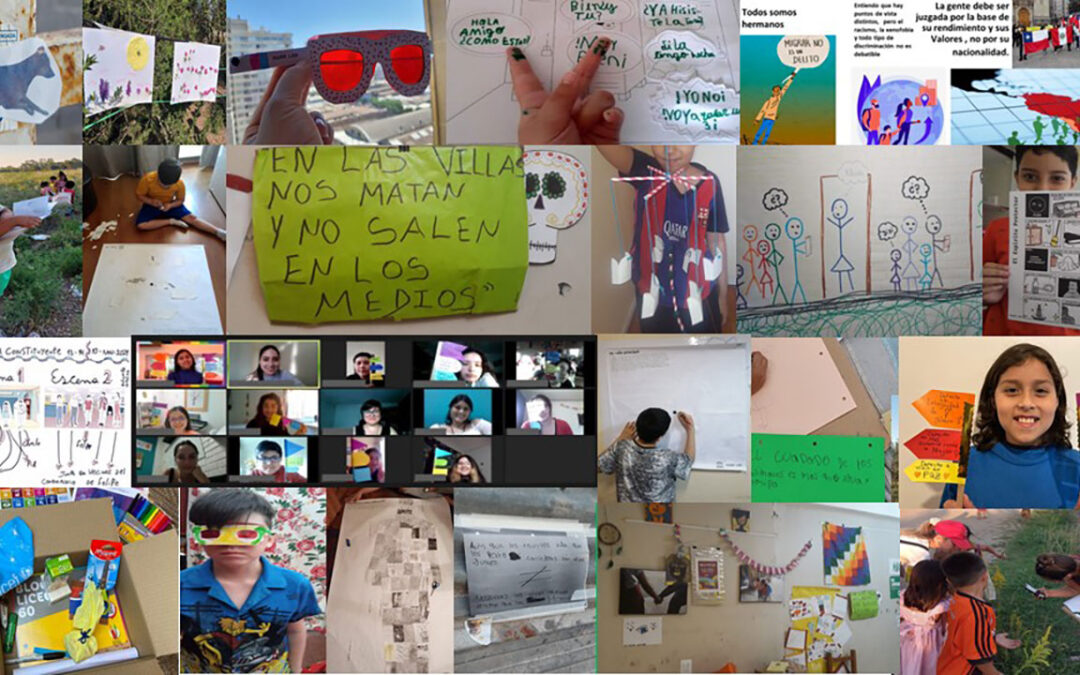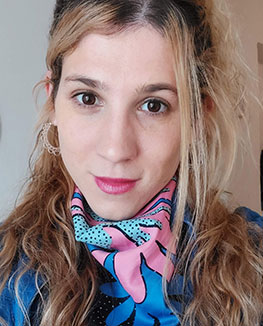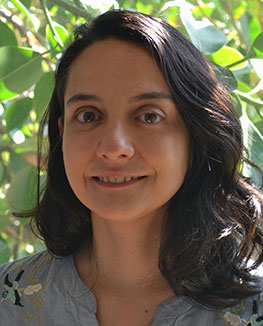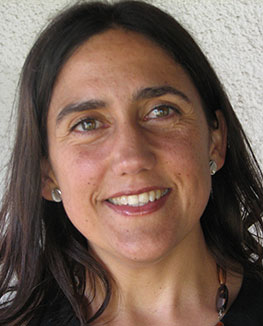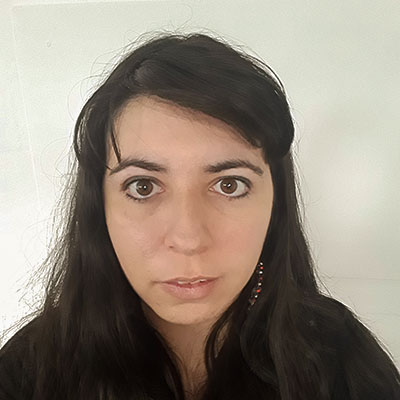| > Español |
Where to start? Children produce the world they live in
Reimagining childhood studies implies reimagining children and their experiences. Thinking of childhood as a plurality of localised, heterogeneous, ambivalent and conflictive practices, relations and experiences challenges us in multiple ways – conceptually, methodologically, ethically and politically. This leads us to consider a plurality of strategies which allow us to address this diversity in the materialities of children’s existence, which they not only live in but also produce. In addition, this implies the importance of not obscuring what exists in common between children. In principle, these commonalities exist because of their generational and subordinate position in relation to the practices and meanings that we adults establish. However, their meanings are sometimes resignified by children.
Focusing on reimagining childhood studies, we write collaboratively as a group of researchers from Chile and Argentina. We met through a series of face-to-face and virtual meetings that have allowed us to exchange materials, references and ideas. We focused on our research and intervention work. In these works, we develop participatory projects with children (from 3 to 15 years old) in spaces of popular education and militancy, in virtual forums and in urban territories such as Santiago, in Chile, and Villa María and Buenos Aires, in Argentina. As women researchers we are based on different disciplines, such as urban studies, anthropology and sociology. In the (unequal) material articulation with children – semiotical, ethical, political and affective (Haraway, 2019), we “carefully” (“con cuidado”) (Puig de la Bellacasa, 2017) recognise that the intersections of class, gender and generation amongst us generate connections and dilemmas that are entangled in our praxis.
Under this framework, as a group we reflect on the particularities of each territory and seek to contribute to the discussion on childhoods in Latin America. From the concrete, sound and visual materials that our fieldwork gives us and with the active collaboration of the children, we build proposals and relations which enable us to progress in research and action. Although these materialities and experiences are diverse and located in a region marked by persistent inequality, this dialogue has helped us find common ground. In this manner, we have been able to make these Latin American children visible as social agents who participate in the social production and reproduction of their lives through multiple interactions, actions and discourses. The children’s ways of doing – which we have discovered in being with them – are linked to their capacities to know, signify, solve, improvise, mobilise demands, form intentions, coordinate actions with others and act creatively, despite uneven power relations between groups and generations.
One of the challenges of children-centred research is the risk of essentialising childhood experiences or exalting “the voice of childhood” as if it were merely a reflective and explicit account (Spyrou, 2011). We are attentive so that we do not think of children as subjects who are radically different and distinguishable from their social reality. Our actions in the field and in our interactions with them, do not seek to define meanings and ways of doing “a priori”, rather we try to trace and understand the experiences of the children from the associations that they and we produce. Our intergenerational encounters mobilise us. We explore how subjects and objects are always in relationship. In other words, we explore how we as actors are unequally positioned and yet we create linkages.
Indeed, in our work, we understand children as active agents in their own social world, which includes other children, adults and beings beyond humans. Understanding children in their interactions with others means recognising children as a central part of a network of embodied relationships and relations as narrations, in real time, and places that enable, accompany and limit their actions. Observing links in this way is based on the assumption that they are not static. In relatively short periods of time, children make and undo ties, change power dynamics or are interpellated by them, and expand their radius of action in their communities and territories.
For instance, we have traced a node of relations by fostering children’s position as citizens and active members of their political community, encouraging them to give their opinions about the country they live in, especially in the context of the Chilean constitutional process. In this way, we reflect on how they see themselves in relation to authority figures and what they think about the problems that affect their compatriots. Another of our projects seeks to intervene and trigger conversations with children about their interaction with the spaces of their city. And yet another piece our work tries to recognise the relevance that other ontologies have for children and their community, through the production of a census of animals that inhabit their neighbourhood. This has the aim of accounting for conviviality from human and more than human entanglements, no simple task (Latour, 2008).
Therefore, the research that each of us convenes is made possible through political, affective and methodological frameworks that we establish with children in their territories. In the next sections, we delve into some central cleavages we have encountered and generated in these social relationships and knowledge relations with children.
The political and affective dimension of working with children
Our studies and interventions produce knowledge not only about the plurality of Latin American childhoods but they also register how children contest these constructions. Here, we consider children as subjects – not only social but also epistemic and political – who generate new things in our research in which, luckily, unexpected things may happen. In this regard, it is impossible to ignore the deep political power of our ‘doing’ with children.
We highlight that children are subjects of rights as legally established and are also political subjects who participate daily in the organisation of all areas of life. Therefore, our research processes give space to the politics of childhood and the things that children make happen within the political world. This is beyond the opinion of children about their representatives, including when they discuss meanings about their daily lives. Likewise, the active presence of children changes the route of our research and that of the organisations and institutions in which they participate.
The political recognition of children connects with the next point that we are interested in addressing. This has to do with how the methodologies and products of our studies exceed our intentions at the starting point in the design. Thus, we can observe some scenes that are repeated in our projects. For example, a meal made as a snack among all; children making models and cartographies of the neighbourhoods; children producing drawings, marks and interventions in space; the sheets on which we write stories and play. These productions remain in the places where we work and become part of life there. They are materials, processes and transformations that unite us and go beyond us in the political, affective and methodological bonds with children.
Methodologies as a kaleidoscope
The exchange of research experiences with children has allowed us to recognise certain shared principles that traverse our methodological tools. Although we do not follow recipes for how to encounter the plurality of children’s experiences and their political nature, we identify visual, sensory, aesthetic and dynamic elements as central aspects for our work with children. Children connect with their territories and experiences from their bodily perceptions and from their exposure to the materiality of their daily lives. In this regard, the exploration of the visual and concrete representations of abstract concepts such as citizenship and identity can be benefited from the devices of contemporary art, urban performance and the research in social sciences, shared in these cases with children.
One example from our work is the construction of citizen artefacts, such as three-dimensional pennants, glasses or mobiles made from waste or recyclable elements to retranslate childhood meanings. Another example is the creation of logbooks on native plants and the production of a census of animals in a territory. And finally, we have collectively constructed posters, stories and comics and tours with children of their life territories using walks, games, interviews and photographs. All of these examples can be understood as ways to investigate what it means for children to be citizens, have rights, belong to a territory and community, and know about what surrounds us.
We believe it is important to understand research methodologies with children as a continuum, an emergent solution, with borders and leaking points. We understand methodology as a practice that permanently turns us to face the world in a collaborative way, co-creating understandings and solutions for common life. In this line of conceptualising methodology, feedback between us and the children unfolds in a dialogic way through growing mutual knowledge. This intergenerational encounter between social groups provokes sharing of what each one brings in order to move the limit of what is possible. Nevertheless, we understand that this is not an easy task. We allow ourselves to be questioned in being and doing with children, with the aim of avoiding romanticisation or infantilisation of and through our methodological strategies.
Likewise, we think that digital is essential for this generation. Although we insist on the physical space we share, we understand that it can transcend physical and known limits. We believe in the use of shared platforms with children to exchange projects and points of view, as well as to disseminate our findings to others.
In short, we highlight the multidisciplinarity of the methods used. Our materials are hybrid, as they combine perspectives from different ways of approaching research such as ethnographic, experimental, and narrative. The children in our projects register, create, imagine, count, draw, walk, and mobilize different elements to talk about themselves, others, their neighbourhood and their city. This language is linked to their embodied, bodily and daily experiences. For this reason, an articulation of devices is generated in practice, in a constant creative process that takes off from multiple references and adapts to each context in a situated manner.
The importance of the diverse ontologies and materialities in the territories
Our work with children focuses on recognising them and getting to know them, but also on inviting them to participate in these processes. This allows us to discover ourselves. We carry our work instruments with us. We share them, and we think about what they produce in our relations with children. For instance, one of our studies put into play a paper notebook, which the children were curious about. They began to actively participate in identifying points to record in the notebook, indicating aspects of their daily life and even emerging conflicts that, according to them, should be registered in the researcher’s own handwriting. Later, sideways looks from the children about the slow pace of the practice led to us replacing the classic notebook with a cell phone. This transmutation was productive and allowed us to “stay close” to temporality, digital writing and children’s interests.
Throughout the time of the pandemic, other research devices have notably mutated. In this way, some of our experiences have been based on WhatsApp connections with children and in discussion groups through the Google Meet. But, they were also based on multiple common materials such as paper, glue, ribbons and colours. These elements travelled into the children’s homes and are materialities that later resulted in digital photographs of the work. Intimate and virtual spaces, ordinary and online times, and these simple resources turned into children’s creations thus became entangled in our research trajectories.
At other times, the digital age seems to stop. At least for some moments, the cell phone, the cameras and the internet do not set the pace of the action, although they are not totally absent. We immerse ourselves again in another of our studies, in a peripheral territory where children investigate plants, animals, bangers and other entities present in that place. There, the work is done in the open air. Writing is often manual. Our resources are paper and scissors, watercolours, ribbons, ropes and blankets supported by the sand floor where the children sit to produce their drawings and notes using cardboard cut-outs as boards. The children collect flowers, leaves, branches, insects, bones, sand and water, looking at them with their own eyes, with a loop, with a microscope and sometimes with a cell phone application that responsively creates an animal.
In this case, these questions appear through our research practices: how do animals survive? Where were certain objects before they ended up as garbage in the neighbourhood? What things are below the neighbourhood, and what things are above it? And why do we see many bicycles on this site which travel together with the children? These are questions that do not arise from speculation “without context”. They emerge in a situated way and contribute to grasping the daily life of children from a social world that is “more than child based” and “more than human” (Kraftl, 2021).
How and where to continue?
Our concern with reimagining ways of researching, doing and being with children aims, on the one hand, to stimulate collaborative research and intervention processes. We also want these processes to be an encounter between us, Latin American women researchers, with the aim of continuing to write together, share feelings and dilemmas and explore our subjects of study.
On the other hand, the encounter emerges as a compass guiding us through the sentiment structure (Williams, 1997) of the children, connecting us with their thoughts and feelings, and learning their meanings, values and practices. We aim to enter this social, open and conflictive process of life in which children participate, and which bonds urban and virtual space, ethnography, art, political elements and multispecies. This multiplicity of relationships, materials, spaces, times and narratives allow us to follow children’s marks and traces and reimagine other possible existences.
In conclusion, from this collective production, we point out that children are social agents and political subjects, full of knowledge and creativity. To trace and interpret the complexity of their life we highlight two movements of thought and action. In the first place, we want to extend our understanding of who are the actors and agencies that intervene in the various relations that children unfold. Second, we seek to narrow the distance between science, society and nature by discussing this arbitrary yet founding division of modern knowledge and the particular way in which childhood is conceived.
In other words, our contribution to the field of childhood studies is to propose a battery of methodological strategies such as walking with others; sharing and making ethnographic, graphic, statistical and audio-visual records; building artefacts to look at and produce meanings; artistically intervening in space; designing cartographies; writing stories; and engaging in intergenerational conversations, among others. These focus on connecting childhood experiences with diverse groups, generations, and ontologies. In particular, we ask ourselves how childhood is produced around different materialities and how attending to “more than human” connections allows us to open up our network of questions.
Our theoretical, methodological and political orientations have no guarantees. These do not proclaim recipes: faced with the multiplicity of childhood experiences, we rehearse possibilities and we make mistakes. Our practices are projects to put together and an invitation to play.
Note: The photographs have the informed consent of the children, families and institutions participating in the different research and intervention projects.
Cite as
Rocío Fatyass, Gabriela Piña, Rosario Palacios and Hebe Montenegro, ‘Without guarantees: many childhood experiences is a project to build up,’ in Reimagining Childhood Studies, 15 November 2022, Translated to English by Andrea Cortés Saavedra, https://reimaginingchildhoodstudies.com/without_guarantees
